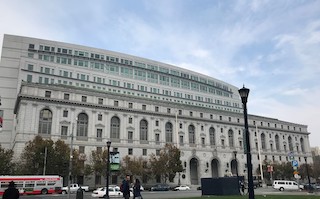Effective January 1, 2021, Assembly Bill (AB) 1950 amended Penal Code § 1203.1 to shorten the period of probation for most misdemeanors to one year and for most felonies to two years.
The felonies which are not included in the new two-year limit on probation are a violent felony as listed under Penal Code § 667.5(c), or if the statute itself specifies a certain probation length like DUI (Vehicle Code § 23153, felony DUI).
Brief Synopsis: While Assembly Bill (AB) 1950 does apply retroactively to people currently on active probation, it does not apply to modify or shorten probation when the probation was revoked or subject to a probation revocation hearing, as this case summary explains.
Appellate courts are so far (as of March 2022) unanimous in holding that AB 1950 applies retroactively to defendants who were serving a term of probation when the legislation became effective on January 1, 2021, and in such cases, the courts have acted to reduce the length of probation. See, e.g., People v. Greeley (2021) 70 Cal. App. 5th 609, 627.
However, no case to date until the case this article summarizes below has addressed whether legislators intended AB 1950’s amendment of Penal Code § 1203.1 to change a judge’s authority to revoke and terminate probation due to a defendant’s violation of probation terms and conditions.
In September 2015, a San Mateo jury convicted Jerry Anthony Faial of first degree burglary (Penal Code § 460(a)), petty theft with a prior theft-related conviction (Penal Code § 666(a)) and two counts of criminal threats (Penal Code § 422). The burglary charge stemmed from entering his father’s home in violation of a stay away order and taking tools. The remaining counts arose from his stealing from a department store and threatening loss prevention officers.
As to the burglary count, the People alleged that Faial was released on bail or on his own recognizance at the time of the offense. The People also alleged that he suffered two prior strike offenses (Penal Code §§ 667(b) – (i), 1170.12(a) – (d)), two prior serious felony convictions (Penal Code § 667(a)(1)), and two prior prison terms (Penal Code § 667.5(b)). The jury found true all special and enhancement allegations.
 Court of Appeal First Appellate District San Francisco
Court of Appeal First Appellate District San Francisco
Prior to sentencing, the judge granted Faial’s Romero motion to strike both of his strike priors, in the interest of justice. The judge then imposed a sentence of 12 years consisting of the low term of two years on the first degree burglary count, plus two consecutive five-year terms for the prior serious felony convictions under Penal Code § 667(a)(1) and made the terms for petty theft and criminal threats concurrent.
The judge suspended execution of the sentence and placed defendant on four years of probation with a requirement that he complete a residential drug treatment program that lasted a year.
More than two years after being sentenced, in November 2017, Faial admitted violating the terms of probation by not completing the drug treatment program. Five weeks later, the judge reinstated Faial’s probation and ordered him to complete another drug treatment program.
In May 2019, Faial’s probation officer filed an affidavit indicating defendant had again violated the terms of his probation, this time by failing to abstain from the use of and possession of alcohol, resisting arrest, possessing a knife and possessing drug paraphernalia arising from two arrests.
On May 15, 2019, the judge revoked probation and ordered execution of the 12-year prison sentence, but suspended it.
In November, the judge found true four more alleged violations and ordered execution of the 12-year sentence.
Faial appealed the judge’s order to the First Appellate District, arguing that Assembly Bill 1950’s two year limit on probation retroactively applied to his case and divested the trial court of jurisdiction to revoke and terminate his probation after he had been on probation for two years. In other words, AB 1950 shortened his probation to two years.
The First Appellate District rejected Faial’s argument, denying his appeal. The appellate court pointed out that the trial court revoked and terminated probation for Faial before January 1, 2021, when the bill became effective. Moreover, the statute does not contain language modifying the trial court’s authority to revoke and terminate probation when defendants violate probation. The legislative history of the bill also contains no such discussion of such power.
The citation for the First Appellate District Court ruling discussed above is People v. Anthony Faial (1st App. Dist., 2022) 75 Cal. App. 5th 738, 290 Cal. Rptr. 3d 687.
For more information about AB 1950, please click on the following articles:
 Court of Appeal First Appellate District San Francisco
Court of Appeal First Appellate District San Francisco